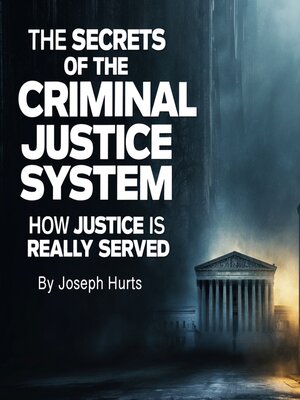The Secrets of the Criminal Justice System
audiobook (Unabridged) ∣ How Justice Is Really Served
By Joseph Hurts

Sign up to save your library
With an OverDrive account, you can save your favorite libraries for at-a-glance information about availability. Find out more about OverDrive accounts.
Find this title in Libby, the library reading app by OverDrive.



Search for a digital library with this title
Title found at these libraries:
| Library Name | Distance |
|---|---|
| Loading... |
This audiobook is narrated by a digital voice.
The criminal justice system that operates in most modern democracies bears little resemblance to the adversarial proceedings depicted in popular media, where skilled attorneys battle before impartial judges and juries to determine guilt or innocence through careful examination of evidence and witness testimony. The reality of criminal justice involves a complex bureaucratic system driven by practical considerations of efficiency, resource management, and institutional relationships that often prioritize case processing over truth-seeking while creating systematic biases that affect different defendants very differently based on their economic resources, social connections, and demographic characteristics.
The plea bargaining system that resolves the vast majority of criminal cases operates largely outside public view and judicial oversight, with prosecutors and defense attorneys negotiating case resolutions based on factors that may have little relationship to the strength of evidence or the appropriate punishment for alleged crimes. These negotiations often involve implicit or explicit coercion of defendants who may be innocent but face overwhelming pressure to accept plea agreements rather than risk much harsher sentences if convicted at trial. The plea bargaining process can involve considerations of court scheduling, prosecutorial workload, and institutional relationships that may override concerns about individual justice or factual guilt.
The prosecutorial discretion that determines which cases are pursued and how they are charged represents enormous power that operates with minimal oversight or accountability while creating opportunities for bias, political influence, and selective enforcement that can dramatically affect outcomes for similar cases depending on factors unrelated to legal merits.







